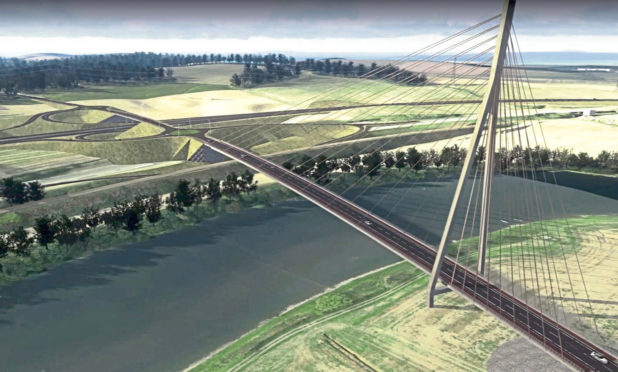If the Tay Cities Deal is to be signed then it will be administered in a post-Brexit environment.
It does not matter whether pen is put to paper on a heads of terms agreement by both Scottish and UK Governments today, tomorrow, next week or next month.
The reality is there will be at least another year of negotiations, re-jigging of business plans and sorting of the wheat from the chaff projects-wise before final sign-off is granted and money starts to flow.
The UK is scheduled to leave the EU on March 29 next year.
Unless there is a huge change of heart on Brexit – something that perhaps cannot be ruled out given the febrile atmosphere around the subject – the UK will no longer be part of the trading bloc by the time a Tay Cities Deal comes into being.
Does the UK Government really want to make long-term funding commitments at such an uncertain time?
The latest figures suggest the Tay Cities deal could be in line for collective funding from north and south of the border of circa £240m.
Within that, the UK Government is seemingly struggling to stand its hand 50:50 at the bar with the administration at Holyrood.
Considering we started off with a vision of government buy-in of £763m – a figure I always thought was ambitious – the massive drag back in scale is hugely concerning for this region’s long-term economic prospects.
And that is before you take into account the secondary financial hit the deal faces.
That’s because the whole concept is built around using public money to pump-prime the market and leverage in private investment.
The £1.8 billion investment figure quoted in the original Tay Cities Deal submission was based on public and private cash together – with the larger part of that cash mountain supposedly being sourced from the business sector.
Again, I always viewed the spin-in investment figures as hugely ambitious.
But if the current mood music on Tay Cities proves correct, we are going to fall very far short of the mark when all is said and done.
I have previously called out the deal team – led by David Littlejohn – for a lack of clarity and detail in their public communications over the project.
They disagree with my view on that, but I think my greatest issue now with the Tay Cities Deal is the lack of urgency surrounding it.
I do not get the impression that doors are being knocked, shoe leather is being worn down and pressure being applied in the corridors of power to get the deal over the line.
I hope my gut feeling is wrong and, as I am assured is the case, positive things are happening in the background.
But it goes back to the point about communication and the right of public and project stakeholders to be kept informed.
Right now we are all scrabbling around in the dark, hoping a deal – any deal – will eventually emerge in some shape or form.
That is not acceptable for a project as economically critical as this.
It is long past time for heads to be knocked together and a deal done.

